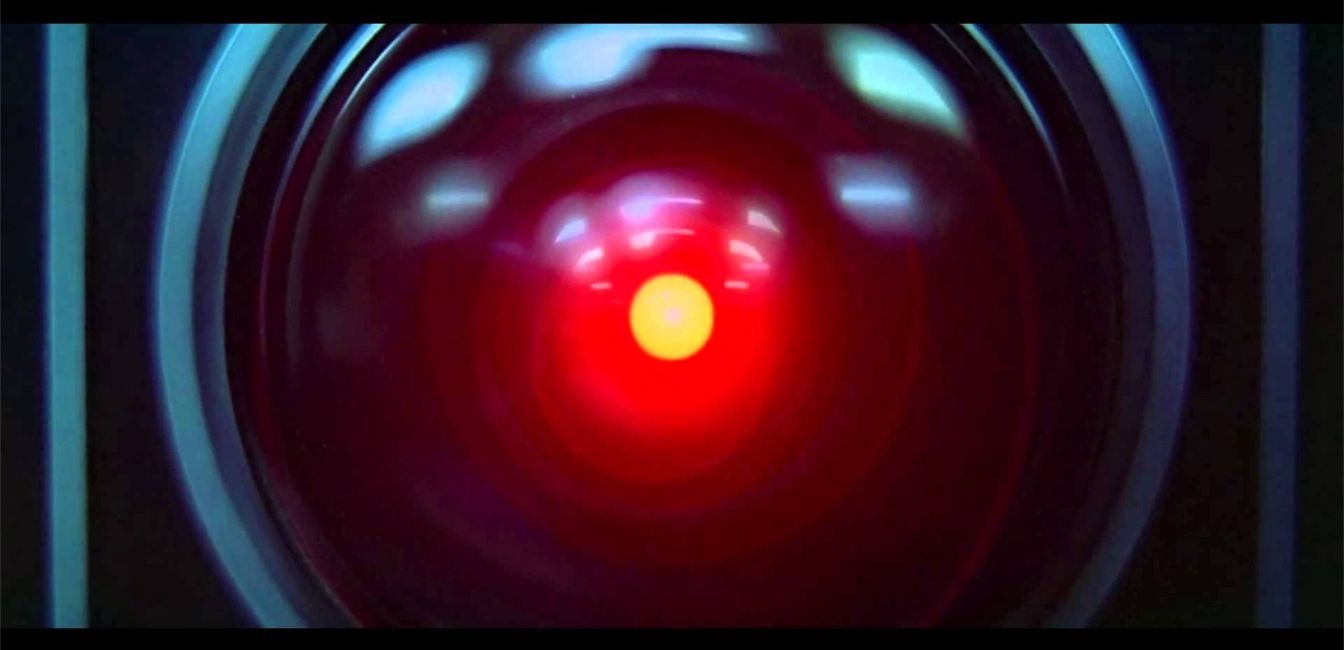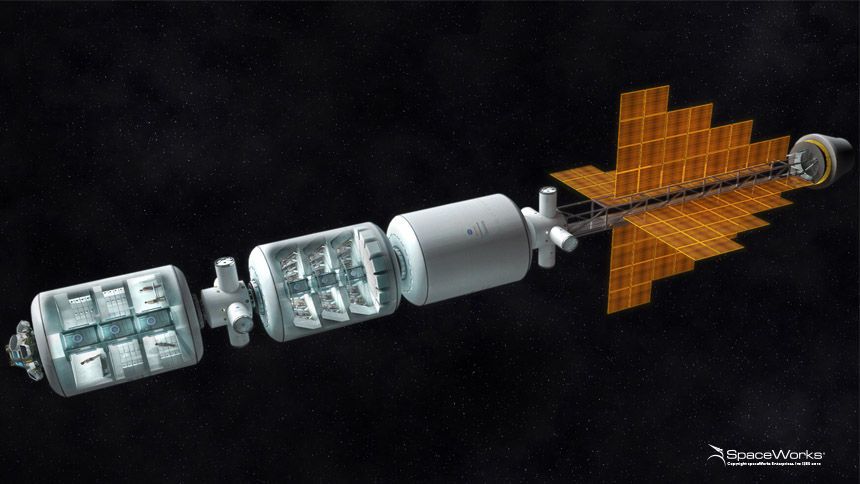Archive for the ‘innovation’ category: Page 197
Aug 31, 2016
Lenovo’s Yoga Book is part tablet, part sketch pad
Posted by Shailesh Prasad in categories: computing, innovation
Let’s face it: Tablets are on the brink of death, and it’s difficult to get excited about a new slate these days. And even though tablet-laptop hybrids are taking off, that market is cornered by Surfaces and iPad Pros. So I wasn’t prepared to be as thrilled as I was by Lenovo’s latest offering. The Yoga Book, based on my experience with a preview unit, is not merely a mimicry of Microsoft’s Surface Book; it has impressively innovative features and a well-thought-out interface that make it a solid hybrid in its own right.
Martin Kern, Interim Director at the European Institute of Innovation and Technology (EIT) highlights the importance of open innovation.
Aug 30, 2016
‘Hibernating’ Astronauts May Be Key to Mars Colonization
Posted by Klaus Baldauf in categories: innovation, space travel
Colonizing Mars may require humanity to tap into its inner bear.
Researchers are working on ways to induce a hibernation-like torpor state in astronauts — a breakthrough they say would slash costs and make the long journey to the Red Planet safer and far less taxing for crewmembers.
Such benefits could help lay the foundation for the first footsteps on Mars, and they’re essential to the establishment of a long-term human outpost there, project team members said. [Red Planet or Bust: 5 Crewed Mars Mission Ideas].
Continue reading “‘Hibernating’ Astronauts May Be Key to Mars Colonization” »
Aug 27, 2016
This russian billionaire has a plan to explore Proxima b, our closest Earth-like planet
Posted by Klaus Baldauf in categories: innovation, space travel
Back in April, Russian billionaire Yuri Milner pledged US$100 million toward a crazy plan to visit another star system.
The mission — Breakthrough Starshot — aims to get this done by propelling teeny, tiny spaceships to 20 percent the speed of light with powerful lasers.
Milner and famed physicist Stephen Hawking initially said their destination would be Alpha Centauri: a star system located some 4.37 light-years (25.7 trillion miles) away from Earth.
Aug 27, 2016
WebTorrent: 250K Downloads & Strong With Zero Revenue
Posted by Sean Brazell in categories: innovation, internet
The desktop variant of innovative torrent client WebTorrent has now clocked up an impressive 250,000 downloads, its founder reports. In a market where competing clients are often closed source or commercial ventures, WebTorrent promises to be transparent and non-commercial, forever. And that’s despite Netflix knocking at the door.
 Stanford University graduate Feross Aboukhadijeh is passionate about P2P technology. The founder of P2P-assisted content delivery network PeerCDN (sold to Yahoo in 2013), Feross is also the inventor of WebTorrent.
Stanford University graduate Feross Aboukhadijeh is passionate about P2P technology. The founder of P2P-assisted content delivery network PeerCDN (sold to Yahoo in 2013), Feross is also the inventor of WebTorrent.
In its classic form, WebTorrent is a BitTorrent client for the web. No external clients are needed for people to share files since everything is done in the user’s web browser with Javascript. No browser plugins or extensions need to be installed, nothing needs to be configured.
Continue reading “WebTorrent: 250K Downloads & Strong With Zero Revenue” »
Aug 25, 2016
How Do You Know Your Lab-Grown Burger Is Safe To Eat? — By Jamie Condliffe | MIT Technology Review
Posted by Odette Bohr Dienel in categories: business, futurism, government, innovation
“Startups are making realistic lab-grown foods, but government food regulators aren’t sure how to police them.”
Aug 24, 2016
Eleven Reasons To Be Excited About The Future of Technology — By Chris Dixon | Medium
Posted by Odette Bohr Dienel in category: innovation
“There are many exciting new technologies that will continue to transform the world and improve human welfare. Here are eleven of them.”
Aug 24, 2016
You Must Define This Term to De-Risk Innovation
Posted by Karen Hurst in categories: education, innovation
Very true; even some added the question “is it insane enough?” in the mix. I noticed that Jack Ma seems to like this one.
The Innovation Excellence community is home to innovation articles, webinars, videos, training and education — powering successful growth in the innovation management profession.
Aug 24, 2016
Steve Fuller’s Review of Homo Deus: A Brief History of Tomorrow by Yuval Noah Harari
Posted by Steve Fuller in categories: big data, bioengineering, biological, bionic, cyborgs, disruptive technology, energy, evolution, existential risks, futurism, homo sapiens, innovation, moore's law, neuroscience, philosophy, policy, posthumanism, robotics/AI, science, singularity, theory, transhumanism
My sociology of knowledge students read Yuval Harari’s bestselling first book, Sapiens, to think about the right frame of reference for understanding the overall trajectory of the human condition. Homo Deus follows the example of Sapiens, using contemporary events to launch into what nowadays is called ‘big history’ but has been also called ‘deep history’ and ‘long history’. Whatever you call it, the orientation sees the human condition as subject to multiple overlapping rhythms of change which generate the sorts of ‘events’ that are the stuff of history lessons. But Harari’s history is nothing like the version you half remember from school.
In school historical events were explained in terms more or less recognizable to the agents involved. In contrast, Harari reaches for accounts that scientifically update the idea of ‘perennial philosophy’. Aldous Huxley popularized this phrase in his quest to seek common patterns of thought in the great world religions which could be leveraged as a global ethic in the aftermath of the Second World War. Harari similarly leverages bits of genetics, ecology, neuroscience and cognitive science to advance a broadly evolutionary narrative. But unlike Darwin’s version, Harari’s points towards the incipient apotheosis of our species; hence, the book’s title.
This invariably means that events are treated as symptoms if not omens of the shape of things to come. Harari’s central thesis is that whereas in the past we cowered in the face of impersonal natural forces beyond our control, nowadays our biggest enemy is the one that faces us in the mirror, which may or may not be able within our control. Thus, the sort of deity into which we are evolving is one whose superhuman powers may well result in self-destruction. Harari’s attitude towards this prospect is one of slightly awestruck bemusement.
Here Harari equivocates where his predecessors dared to distinguish. Writing with the bracing clarity afforded by the Existentialist horizons of the Cold War, cybernetics founder Norbert Wiener declared that humanity’s survival depends on knowing whether what we don’t know is actually trying to hurt us. If so, then any apparent advance in knowledge will always be illusory. As for Harari, he does not seem to see humanity in some never-ending diabolical chess match against an implacable foe, as in The Seventh Seal. Instead he takes refuge in the so-called law of unintended consequences. So while the shape of our ignorance does indeed shift as our knowledge advances, it does so in ways that keep Harari at a comfortable distance from passing judgement on our long term prognosis.
















